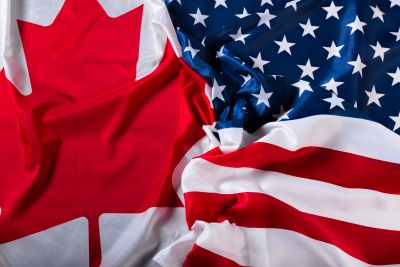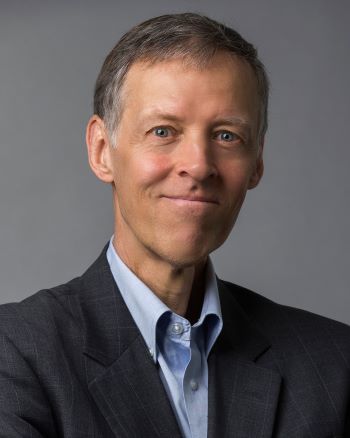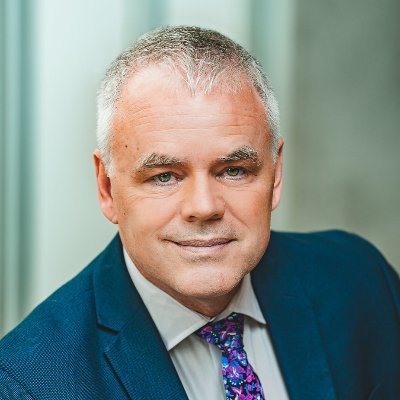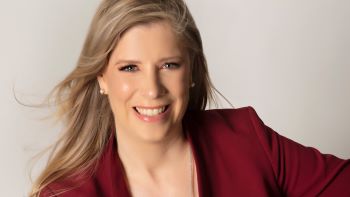Freedom to dream: the innovative thinking of social entrepreneur Vicki Saunders
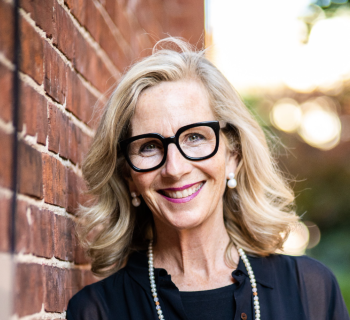 Social entrepreneur Vicki Saunders learned from her parents the values of having the freedom to dream and being part of a close, interconnected community. Those values shape her innovative thinking.
Social entrepreneur Vicki Saunders learned from her parents the values of having the freedom to dream and being part of a close, interconnected community. Those values shape her innovative thinking.
“The theme of dreaming is just such a core practice in my family. We are always, ‘Let’s try this and see how it goes’ and we’d all go off and try it,” she said in conversation with Research Money publisher Jeffrey Crelinsten in a R$ podcast.
“Everything I’ve done has been to figure out how to design different environments to free us, so we can create the kind of world we want.”
Saunders grew up on Saunders Farm, a family farm (now a popular tourist attraction) and business her parents started near Ottawa. She and her siblings all weeded the pick-your-own strawberry farm and learned what Saunders describes as an “unbelievable work ethic.”
After completing a Master’s degree in comparative foreign policy at the University of Toronto, Saunders was considering her next career step and living in Paris in 1989 when the Berlin Wall fell. She moved to Prague in the Czech Republic where she stayed for five years and became an entrepreneur in her mid-20s.
“I wanted to run business in a really different way that I learned on the farm, which is essentially building business with community and in community,” Saunders said. “So that you are good at whatever your thing is and you find the others who have skillsets that help you do your work that you’re not great at.”
Saunders’s dream was “re-envisioning how to do business in a more caring, flexible, open, sustainable way, versus just trying to extract as much as you can from everybody and then take home the pile.”
In Prague after the Soviet Union fell, Saunders found herself in a place where everybody was dreaming about what they were going to do now that they were free. “[I’m] standing in the middle of the square with hundreds of thousands of people ready to throw out whatever they’re already doing and reinvent themselves.”
“It was the most intoxicating thing that I feel changed me almost at a DNA level,” she said.
She started two businesses in Prague, including an English language school, and convinced all her friends to start businesses. She had a business partner who she said “taught me that rules are made to be broken.”
After Saunders returned to Canada, her first entrepreneurial venture was creating a first-of-its-kind international co-op learning program for Canadian high school students, engaging several companies with international businesses. The program grew into KidsNRG a youth-inspired consultancy for businesses.
In 1999, she founded the NRG group which became a venture capital group. NRG merged with a $40-million venture fund and in 2000 became a publicly traded company on the Toronto Stock Exchange, with Saunders as the co-CEO.
“We got kind of wiped out by the market crash,” she said. The lesson she learned from that experience was “how the structure you’re in really dictates what you can do. And if you’re not in a freed enough structure, you get turned into the ‘sausage.’”
The only thing entrepreneurs really know is that their venture will not be what they think it will be, Saunders said. “When you add people to an idea and stir, it’s very different than your rational thought of how it should happen.”
Empowering and supporting women entrepreneurs
Saunders began hearing what business and financial advisors were saying to women entrepreneurs who had great ideas and startups. Their constant message was that they’d like to take the startup to the next level, but with someone who has more experience and knows what they’re doing.
“This is what they do to all of us [women entrepreneurs],” she said. “This is why you don’t see more women and folks that don’t look like what is supposed to be 'success' at the top of the game, because people are uncomfortable with things being done differently.”
“[Yet] the stuff that’s on the edges is where all the innovation lies,” she noted.
Only two percent of global venture capital goes to 51 percent of the population, which is women. In Canada, four percent of the Business Development Bank’s capital goes to women. The same holds true for non-binary people and marginalized groups.
“I was always aware that our economic model is broken [and it] doesn’t make any sense the way we do things,” Saunders said. “We’re creating such a [wealth] divide and gutting out the centre of society.”
Society needs to rethink what it actually values and create a different economic system with new approaches to achieve more equitable outcomes, she said.
Saunders started SheEO, a venture capital firm that uses a crowd-funding approach to aggregate capital and create a community of women investors to decide where the money goes, in a way that isn’t focused on making more money but that benefits all of society.
“We don’t prioritize money over people, ever,” she said. “We’re not here to win. We’re here to transform [society].”
To do that, it’s important to do what Saunders calls the “inner work” first, to change your mindset and “shed your thinking so you can dream in something new. You can’t transform systems unless you transform yourself.”
The Bank of Montreal took a risk and financially backed SheEO in its early days.
Ten years later, SheEO has evolved into Coralus – a name more reflective of the VC firm’s collective [as in coral in the ocean] and mutually supportive approach. Coralus now has a portfolio of 216 companies around the world with innovative ideas and ventures, including some scaled-up companies that are ready to grow.
Better Packaging in New Zealand, for example, has created the world’s first home compostable courier packaging, made out of plastic garbage collected from rivers and waterways by women in impoverished communities.
“It’s all done from a community perspective,” with decisions on where to invest capital made by the Coralus community of 7,500+ women, Saunders said. “We’ve created this incredibly rich soil for new ideas to be birthed that help us to get to a better world.”
Coralus provides zero-interest loans to its portfolio companies that then pay the money back so that the loans are rotated through the companies.
Coralus has about 115 different organizations with pods of five to eight people working on various issues and different approaches to societal challenges, including education, bullying and violence prevention, alternative energy, food systems and food security, health and fitness, ocean health, and restoring, reducing and eliminating waste.
Fifteen percent of Coralus’ ventures are Indigenous-led from Canada, the U.S., New Zealand and Australia.
“We’re not looking to find a unicorn. We’re looking for transformation [of systems] to occur,” Saunders said.
“Our call is for folks who are radically generous and want to gift themselves – their money, their networks, their expertise [and] their influence to support others so we can collectively create the new world.”
New economic and business models are needed
That new world is urgently needed because the current economic and business systems and investment models are starting to crash and break down, Saunders said.
“We are so stuck in a mindset that money has to make more money,” because global society is focused on externalities, she said.
When it comes to value chains, for example, fish is caught in British Columbia, sent to China for processing and then shipped back to Canada. Butter is shipped from New Zealand to Chile rather than being made in Chile.
“It’s completely nuts what we do. It’s just a complete disaster, a lack of thought around whole systems and the true cost of things,” Saunders said.
Research shows there isn’t a single sector on the planet that’s profitable if the cost to the environment and society is counted in, she noted. “We have a story of 'this is the only model we can have,' but it’s killing us and it’s ruining the planet.”
Startups and companies trying to scale up can’t do business the way they did 20 years ago because the cost of acquiring a customer is now 40 cents on the dollar, by advertising on social media platforms, Saunders said.
Companies that don’t “own” their customers and have access to them have to go through these social media “pipes” find customers by paying for ads, she said.
“A vast majority of our community[in Coralus] are not doing ads anymore because they just get successful and then the algorithm ramps down so that they have to spend more and they can’t make the numbers work anymore.”
Companies that are funded by venture capital run an even bigger risk with their lines of credit because for most businesses “there’s no more money to follow,” Saunders said.
“That means the only people that can actually build up businesses to scale are incredibly well-funded ventures that can keep going back for more and more money and lose money for a decade – hello, Amazon – and then take over the market.”
“We’re out of balance in thinking everything can be monetized and that money matters more than humans in our world,” Saunders said. “That’s just got to stop.”
In Canada, about 98 percent of companies are small and medium-sized businesses. Yet government policy is designed for the 1,200 companies that have more than 500 employees and half of them are foreign offices of multinational firms, she said.
“The people who keep showing up at the [federal] finance minister’s office are the same old dudes and creating policies for themselves, or this writing cheques for branch offices for big aluminum companies [or] car companies, and paying a million bucks a job to invest in these facilities,” she added.
With the federal Strategic Innovation Fund, for example, “these are taxpayer dollars that are just being flushed out to these big companies, assuming that their factories are going to create these high-quality jobs.”
Canada needs a federal government that can actually understand how to do distributed global networks, leverage Canadians’ connections with other parts of the world to expand exports, and create better conditions for small businesses to thrive, Saunders said.
“If we could actually understand how to grease the wheels of [Canada’s] small business community to thrive and how we’re doing debt, how we look at risk, and reassess that model, we would do very well.”
Saunders said she has been warning for about 18 months about a “tsunami” of problems that are coming for Canadian small businesses. This includes drying up financing and discretionary spending, cross-border and exporting issues, and the impacts of climate change.
The poly-crisis provides Canada with an opportunity
Saunders is convinced that the world is moving from hierarchical-based models and systems to a distributed global network model.
“Everything is moving from transactions to relationships for more resilience,” she said. “It’s small local organizations and communities connected together that create the resilience globally.”
Coralus’s connected, mutually supportive community is now “incredibly prepared for the chaos that’s coming, as the system and structures start to break down. We have breakthrough new models to go in when there’s a vacuum.”
“We’ve created thousands and thousands of jobs in our community that are great, high-paying jobs in excellent industries, with sustainability [and] treating people well,” she added.
Canada’s productivity problem can’t be solved with a “mechanistic” approach that’s not human-centric but treats people as widgets, Saunders said. Instead, create environments and shift incentive systems so they’re aligned with human behaviours and needs, she advised.
“We need a diversity of success. It’s the idea of scaling deep instead of scaling up,” as framed by Tatiana Fraser at The Systems Sanctuary which has locations in Montreal and St. Louis, Missouri.
Government’s role is to listen to a broader diversity of people and pay attention to approaches that will unleash and remove the friction for 98 percent of Canada’s economy, Saunders said. Find and feed innovations as experiments for the future, pilot them and celebrate them and support more of them.
Policymakers need to find the internal people who’ve been taking some risk and been successful at that and create clusters of people to support each other, value that and keep expanding from there.
“The most important skillset we need right now is people who know how to redesign our systems so they’ll work for everyone,” Saunders said. “That’s way more important than making money.”
As for the investment community, investors need to realize that the wealth complex of industrial advisors views risk a certain way and investors aren’t getting a full picture, she said. “They don’t look at the long-term risks of the poly-crisis.”
Investors need to look at the inherent risks built into their portfolios and take steps to mitigate these risks, she advised.
As for her advice for young people, Saunders said: “Don’t listen to anyone who tells you, ‘That’s not how we do it.’”
“Do some work to figure out what you love, what motivates you, what excites you with ease and build your life from there,” she added.
“Go deep and always design your life from what you have in abundance. What you do without even thinking about is your gift and that’s where your life needs to flow from.”
As an entrepreneur, Saunders said she doesn’t think of anything as risk at all, nor does she think of failure. “I have so much personal agency that I’ve developed over the years with confidence and it was really instilled as a young kid.”
Despite the collapse of global models and systems, this time of chaos creates exciting opportunities for Canada and its future, Saunders said.
“I think this is our chance to really show what is our dream for our future, and it’s not the American dream. It’s this gorgeous mix of folks from all over the world bringing their dreams at all stages, all ages, all different definitions of success woven together to create the fabric of a society that is incredibly resilient.”
“We’re not here to be the goliath of anything,” Saunders said. “We’re here to create the magical society and I’m super-pumped about it.”
R$
| Organizations: | |
| People: | |
| Topics: |
Events For Leaders in
Science, Tech, Innovation, and Policy
Discuss and learn from those in the know at our virtual and in-person events.
See Upcoming Events
You have 0 free articles remaining.
Don't miss out - start your free trial today.
Start your FREE trial Already a member? Log in
By using this website, you agree to our use of cookies. We use cookies to provide you with a great experience and to help our website run effectively in accordance with our Privacy Policy and Terms of Service.


